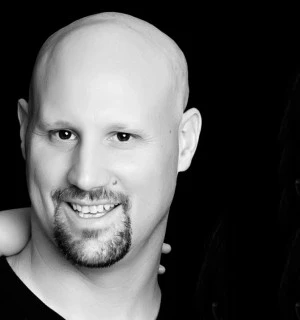
Behind every cancer patient, there is likely a caregiver whose critical role is often overlooked. By helping patients understand and process their disease, caregivers can positively impact patients’ treatment decisions as well as their ability to adjust to the new reality of being under an oncologist’s care.
The complexities and responsibilities associated with being a caregiver are significant and can be summed up this way: Caregivers experience many of the same stresses that patients do, but they typically receive a fraction of the support. It has also been said that “a person does not get cancer, a family does.” While a family can be defined in many ways, it’s true that each member feels both the short- and long-term effects of a diagnosis.
Why are caregivers so valuable? First and foremost, they can be a patient’s eyes and ears when it matters most. Digesting initial meetings with multiple medical specialists is difficult, to say the least. It’s nearly impossible to understand everything an oncologist tells you about a cancer diagnosis when your health is on the line. The emotions, the sterile setting of an office or hospital, the uncertainty, the fear – all of this can impact how patients absorb and interpret information.1 Bringing someone with you to listen, take notes, and ask the questions you haven't thought of can be key to understanding the whole picture when it comes to a diagnosis and treatment options.
Outside the clinic, caregivers are just as important. They can help patients discuss and evaluate next steps, for example. They may serve as informal research assistants, looking up treatments and clinical trials when patients are physically or emotionally drained. They often facilitate communication with family members and friends who are eager for updates, and they prepare and deliver much-appreciated meals. Through it all, they listen to doubts, reassure fears, and calm tensions – while likely experiencing similar emotions themselves.

To patients, please take this advice: Let your caregivers help. Attending multiple medical appointments by yourself is not necessarily heroic. I know this because I have walked the path of being all alone at the doctor’s office. As a 25-year-old, I chose to not have anyone accompany me when I received my initial stage 1 cancer diagnosis. At the time, I thought it would be better to absorb this news on my own and avoid upsetting my parents and girlfriend. In retrospect, this wasn’t selfless; if anything, it was selfish because I was making a decision for them. When I told them several days later, their concerned reactions did not fully mask their disappointment and regret that they were not with me at the doctor’s office that day to try to make sense of everything.
Patients and caregivers may endure many struggles, though. Cancer, in particular, can lead to relationship stress and even divorce. One good friend of mine who separated from her husband described what it felt like as she was losing her caregiver: “There are few things in life that make you feel more alone than when you're sitting in that chair, through treatment after treatment, and there's no one next to you to hold your hand.”
To patients, please take this advice: Let your caregivers help.
Another patient I know allowed a parent to dictate her treatment to the extent that other members of her support system felt cut off. They could provide only limited assistance and were unable to speak with her about her condition, research medical options, or pursue the right treatment until it was too late.
As this example illustrates, patients must ensure that the right people are involved in their care. A caregiver can be a spouse, a parent, a child, a friend – anyone who is reliable and willing to prioritize someone else’s health. Patients should actively include caregivers in the comprehension and decision-making process because they are ultimately there to provide support and help loved ones recover.
Finally, if you are a patient, do not forget to thank the person (or people) caring for you. It is important to remember that while many caregivers experience significant physical and emotional burdens, they typically lack their own support systems. As a patient, I want to express my personal thanks to all caregivers out there. You are making our lives better in so many ways.
This is the sixth installment in a series of blog posts authored by patient and advocate T.J. Sharpe for Novartis.com. Check back regularly for new installments and learn more about T.J.’s story here.
T.J. Sharpe is not a medical professional but a patient currently undergoing care for advanced melanoma. He is being compensated by Novartis for sharing his story. All opinions are his own. Any and all information, tips, advice, etc. included throughout his series of blog posts stem from his own experience as a patient. Patients should always consult their doctors when seeking medical advice.
Read a #cancer survivor’s perspective on caregivers and the important role they play in a patient’s journey.



